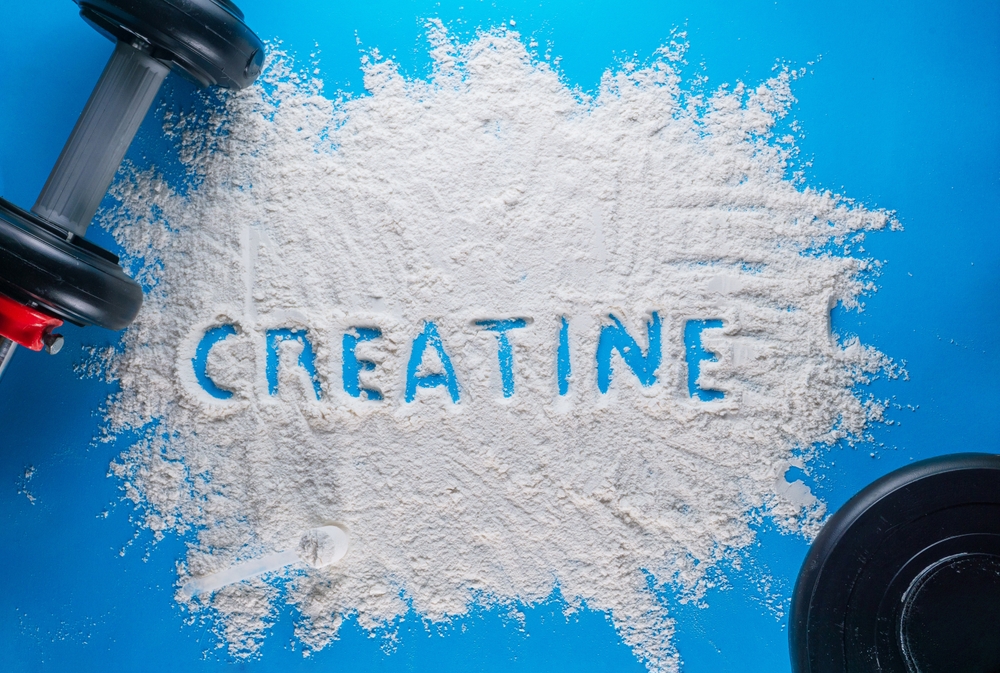Last Updated on November 22, 2022 by admin
We all know that taking creatine can make you stronger and faster. But is creatine safe for athletes? That depends on who you are and how your body reacts to the supplement. For example, if you have a certain condition or take certain medications, then creatine may not be for you. In this post, we’ll dive into some of the potential issues with taking this popular supplement—both good and bad—and what they mean for athletes like yourself!
Creatine can cause cramping in some people
Creatine can cause cramping in some people. It’s not a common side effect, but it’s something that you should be aware of if you’re taking creatine regularly. If your body has trouble absorbing or using the creatine properly, then this may cause side effects such as muscle cramping and stomach pain.
You can avoid these problems by taking smaller doses of creatine and mixing it with some juice or water to make it less potent at first. As your body gets used to the supplement, you can start taking larger doses over time until you reach a level that works best for your body type—but don’t increase too quickly!
If these changes aren’t helping, talk to your doctor about what other options might work for you.
It’s generally safe for healthy adults
A study in the Journal of Strength and Conditioning Research (2007) showed that creatine is safe for healthy adult athletes.
In other words, if you’re a healthy adult who doesn’t have any medical conditions that would make it dangerous for them to take creatine, then taking it shouldn’t be harmful. If you’re an athlete who uses creatine and doesn’t have any adverse side effects from it, then there’s no reason not to continue using it.
However, keep in mind that there are some people who should not take creatine—pregnant women or those with liver or kidney problems—so check with your doctor first before trying this supplement.
Creatine causes the herniation of the SMA grade III/IV
SMA is a rare disease that causes motor neuron degeneration. Motor neurons are special cells in the spinal cord and brainstem that control muscle movement. In SMA, these motor neurons become damaged and die over time, causing weakness in arms and legs as well as other symptoms like trouble breathing and swallowing. The severity of SMA can range from mild to severe, depending on how many motor neurons are affected by it. A person with mild pulmonary involvement may experience some difficulty walking or climbing stairs; someone with more severe pulmonary problems will have difficulty breathing without assistance or even need a ventilator at times; some people with severe muscular atrophy can become wheelchair-bound due to their inability to move their limbs without assistance. The most common form of SMA affects one out of every 10,000 children born worldwide—but it’s still rare enough that most doctors won’t encounter many cases during their careers!
Creatine softens cramps in some people
Creatine is a natural substance found in the body. It’s often used as an athletic supplement to help with muscle recovery and strength. There’s no proof that it can help during exercise, but it has been shown to reduce cramping in some people.
The U.S. Food and Drug Administration (FDA) considers creatine to be generally safe for healthy adults when taken at the recommended dose of 5 grams per day for up to four years. The agency does not have enough information about long-term use or safety for children or pregnant women, so they recommend against using this supplement if you fall into either of these categories.
There are no known risk factors associated with taking creatine supplements, but some people may experience stomach upset when they first begin taking them (this usually goes away after several days). Some people also report muscle cramps when they first start taking creatine monohydrate supplements; this usually goes away after these individuals get used to their new supplement regimen
Creatine is a supplement that can help during exercise
Creatine is a natural substance found in your muscles. It’s also available as a supplement that can help during exercise.
Creatine is safe for healthy adults, but not for children or teenagers. It shouldn’t be used by women who are pregnant or breastfeeding, or by people with heart disease, liver disease, kidney disease or depression.
It’s not likely to cause side effects if you’re healthy and not prone to muscle cramps. But there are some issues to watch out for:
- Creatine causes bowel changes in some people who take it—for example, you may experience constipation or diarrhea while taking creatine supplements.* Some people get stomachaches when they start taking creatine.* If you have allergic reactions such as itching and rash after taking creatine supplements (or any other supplement), stop using them immediately.* Long-term use of large amounts of creatine may cause liver damage.* You should avoid taking large doses of this supplement without talking with your doctor first because it can affect the heart function in some people
Conclusion
Creatine can be a great supplement for people who want to boost their performance, but it may not be right for everyone. The most important thing is that you know what your body is capable of and whether you’re willing to take any risks. If so, creatine might be worth trying out!

